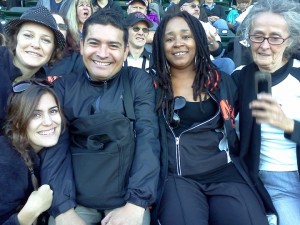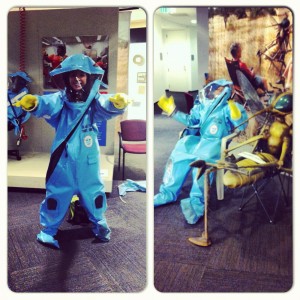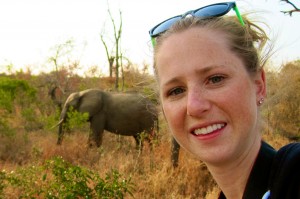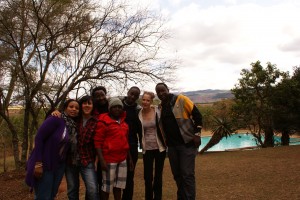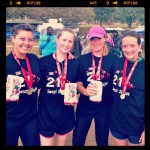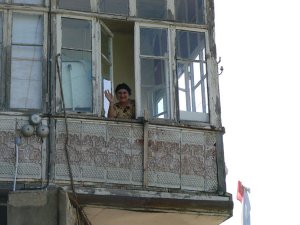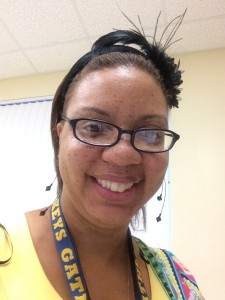 When I was an undergraduate student I wrote a paper titled, Female Delinquents: A Study in Neglect. The paper expressed my notion, which states that, Florida female juvenile delinquents were not trying to be like their male counterparts but rather they were delinquent in their own right. At the time when that paper was written, only few authors had that stance. It was from writing that paper I realized I wanted to further my education and later pursue a profession that dealt with gender issues focusing especially on juvenile justice. To prepare me for that path, I volunteered with the Florida Juvenile Justice, the Non Violence Project, the Community Health Clinic of South Florida and other agencies that work with youth in my community during my undergraduate years. By the time, I did my graduate work I realized one of the best preventive measures against juvenile violence is education. Therefore I decided to work with the organization Strong Women, Strong Girls (SWSG). Through AmeriCorps, mentors of SWSG, like myself, were able to mentor school-aged girls 6 to 10 using a curriculum that promotes strong female role models and relationships. I remember one day in class the girls were assigning themselves roles in a play. The part of judge came up. One girl said that they need a boy to play that part. For me it was a teachable moment. I explained to that a girl that playing a judge could be a girl since a woman can be a judge. I always remember that incident because I feel that girl would less likely turn to violence because she knows she can be anything she wants to be when she grows up even a judge. That is not the only time I worked with youth. I worked with young adults as a graduate assistant for Educational Talent Search. As a graduate student of Educational Talent Search, I provided middle school and high school students help on the college process to include, but not, limited to filling out FASFA forms, requesting recommendation letters from teachers, SMART goals, and so on. From the paper I wrote as an undergraduate to now, my mission has been to help young people find alternatives to delinquency. I feel through service learning, education, and other activities I can help empower youth. They in turn will be able to do the same for the next generation.
When I was an undergraduate student I wrote a paper titled, Female Delinquents: A Study in Neglect. The paper expressed my notion, which states that, Florida female juvenile delinquents were not trying to be like their male counterparts but rather they were delinquent in their own right. At the time when that paper was written, only few authors had that stance. It was from writing that paper I realized I wanted to further my education and later pursue a profession that dealt with gender issues focusing especially on juvenile justice. To prepare me for that path, I volunteered with the Florida Juvenile Justice, the Non Violence Project, the Community Health Clinic of South Florida and other agencies that work with youth in my community during my undergraduate years. By the time, I did my graduate work I realized one of the best preventive measures against juvenile violence is education. Therefore I decided to work with the organization Strong Women, Strong Girls (SWSG). Through AmeriCorps, mentors of SWSG, like myself, were able to mentor school-aged girls 6 to 10 using a curriculum that promotes strong female role models and relationships. I remember one day in class the girls were assigning themselves roles in a play. The part of judge came up. One girl said that they need a boy to play that part. For me it was a teachable moment. I explained to that a girl that playing a judge could be a girl since a woman can be a judge. I always remember that incident because I feel that girl would less likely turn to violence because she knows she can be anything she wants to be when she grows up even a judge. That is not the only time I worked with youth. I worked with young adults as a graduate assistant for Educational Talent Search. As a graduate student of Educational Talent Search, I provided middle school and high school students help on the college process to include, but not, limited to filling out FASFA forms, requesting recommendation letters from teachers, SMART goals, and so on. From the paper I wrote as an undergraduate to now, my mission has been to help young people find alternatives to delinquency. I feel through service learning, education, and other activities I can help empower youth. They in turn will be able to do the same for the next generation.
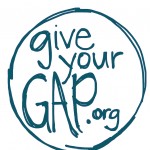 Today’s post is part of a two-part series on AmeriCorps. Rebecca is currently working at the Center for Investigative Reporting as the Business Marketing Coordinator. She found out about GYG through a fellow Model United Nations member, Harrison Gill. You can contact her HERE.
Today’s post is part of a two-part series on AmeriCorps. Rebecca is currently working at the Center for Investigative Reporting as the Business Marketing Coordinator. She found out about GYG through a fellow Model United Nations member, Harrison Gill. You can contact her HERE.
So you’re thinking about AmeriCorps? Let me win you over!
If you’re thinking about doing AmeriCorps, stop thinking and do it.
Positives:
Transferable skills: Each project will undoubtedly give you different skills and experiences. Depending on what skills you want, you can most likely find a program that will contribute to the strengthening of those. I enhanced my marketing skills, organizational skills, and customer service skills. I also grew more confident in voicing my opinions and sharing ideas, and lastly, learned how to analyze programs, find the inefficiencies, come up with solutions and implement them. A word of advice: talk to your supervisor about your aspirations and goals, they are there to mentor and guide you so you can accomplish them.
New friends & mentors: Since we were a pretty small team I definitely bonded with my co-workers as we all embarked on our own financial planning, while developing a program from ground zero that would benefit the larger public. I also made friends with AmeriCorps people stationed in different organizations around my area. The great thing was, we could all go out and be cheap together, because none of us could afford anything too fancy! They also became a great support system outside of service.
Addressing your concerns:
“I won’t get paid enough to live comfortably.” The people at AmeriCorps are pretty smart people, and they make sure you get paid according to the cost of living of the place you’re stationed. You can make it work, but definitely take a good look at your own situation and see what you’ll need to survive.
“I’m not going to like the job and then will be stuck in it for a year.” Before you apply to a certain position, research the organization and read the description thoroughly. Also, know that you will have an extensive interview process, at which time you’ll learn more about the org and the position and will be able to talk to your future supervisor. Lastly, if you really don’t feel comfortable there after you’ve started, you can talk to the agency and AmeriCorps HR to discuss the possibility of transferring or leaving.
“I’ll be lonely and scared in a brand new place.” Make sure you do your research beforehand. You should get a good feeling about the area from finding it on Google maps. Try to be open-minded; brand new places can make you feel lonely, but they can also fill you with excitement and adventure and give you new opportunities to make friends and learn something new.
In conclusion, the most important step in applying for AmeriCorps is doing the research to find a program(s) that you’re really interested in. As you have seen from my previous blog post, interest can quickly turn into a passion and make your job feel more like a calling! Not only did I learn a lot about personal finance at SparkPoint Marin, but I also made great friends, learned how to live on my own for the first time, and came away equipped with great transferable skills and experience.
 Today’s post is part of a two-part series on AmeriCorps. Rebecca is currently working at the Center for Investigative Reporting as the Business Marketing Coordinator. She found out about GYG through a fellow Model United Nations member, Harrison Gill. You can contact her HERE.
Today’s post is part of a two-part series on AmeriCorps. Rebecca is currently working at the Center for Investigative Reporting as the Business Marketing Coordinator. She found out about GYG through a fellow Model United Nations member, Harrison Gill. You can contact her HERE.
After I graduated college and realized getting a permanent job was next to impossible (2010 was not a good year to be searching for a job), I signed up for AmeriCorps VISTA.
When I applied for AmeriCorps I had no idea what to expect. I checked out the project descriptions and the recruiting organizations and chose to apply to projects that both peeked my interest and were outside of my current knowledge base. I also kept location in mind; it can end up being a really important factor in your decision. Anyways, the AmeriCorps VISTA program, unlike other AmeriCorps programs, is designed to help nonprofits get started, to focus on sustainability and program development.
There were quite a few organizations that were looking for someone to help their programs expand their financial services. That sounded interesting, I thought, ‘don’t know too much about financial services!’ I ended up applying to three programs in my state that all were looking into fortifying and growing their VITA (Volunteer Income Tax Assistance) programs and focusing on partnering with fellow nonprofits to help clients get access to many different financial services. These concepts really interested me.
When I first heard about AmeriCorps I thought it was all about mentoring and tutoring children, which is great. But, I was looking for a stepping-stone to a career and I wasn’t looking to become a teacher. Realizing that AmeriCorps offered other projects that I wanted to learn more about and would help expand my knowledge in a specific area such as economic development was great! I knew I had found something I could commit to for the next year.
I accepted a position north of San Francisco 8 hours away from my family in a place I was a stranger to, ready to start something new. SparkPoint Marin’s mission was to help people take control of their own finances. Turns out to help other people, you need to be well versed in these areas yourself. Thus, I was trained in financial coaching and learned how to budget, to save, and to file taxes. Now I volunteer every year during tax season to help people file their taxes and file my own for free as well.
Here are some other resources I learned about that could be useful to you too:
- 211 – Call it and they will help you find what you need.
- VITA
- Health and Human Services
- Food Banks
- Women’s Initiative
- Get Money Smart
- Consumer Credit Counseling Service
- Low Income Home Energy Assistance Program
In fact, all this immersion in finance lead me to start my own finance blog.
I finished my year empowered and ready to take on more challenges. I came away with marketing skills, organizational skills, enhanced customer service skills, confidence in voicing my opinions and sharing ideas, and lastly, the ability to analyze programs, find the inefficiencies, come up with solutions and implement them.
I definitely recommend it to anyone and everyone.
 My name is Alyssa Llamas and I am a Public Health Associate for the Centers of Disease Control and Prevention (CDC). I am currently stationed at the Idaho Department of Health and Welfare (IDHW).
My name is Alyssa Llamas and I am a Public Health Associate for the Centers of Disease Control and Prevention (CDC). I am currently stationed at the Idaho Department of Health and Welfare (IDHW).
The Public Health Associate Program (PHAP) is a training program that provides young, public health professionals the opportunity to work at the frontlines of public health. Associates are stationed at a state, local, tribal, or territorial health department and assigned two focus areas (Chronic Disease, Environmental Health, Public Health Preparedness, Global Migration and Quarantine, Immunization, Injury Prevention, Maternal and Child Health, STD, TB, and/or HIV, Other Communicable Diseases).
Read More› Name: Allie H.
Name: Allie H.
University: UCSD
Major: Biochemistry and Cell Biology
Type of Work: Medical/Public Health
Region: Africa
Length of stay: 3-6 months
Tell us about the nonprofit/social business you work for:
I am working in the capital city of Swaziland, a tiny kingdom located inside of South Africa. Primarily, I work with the Baylor International Pediatric AIDS Initiative (BIPAI) as a research volunteer in the BCM Clinical Centre of Excellence pediatric HIV clinic in Mbabane. At the clinic I am engaged in a variety of small and large scale clinical research projects (mostly retrospective) directed towards supporting policy changes related to HIV care and treatment in Swaziland.
How did you find your position?
One of the Baylor AIDS Corps doctors is a close family friend. I contacted him when I decided to take a year off between undergrad and graduate school and he was more than happy for me to have me travel to Swaziland and help out at the clinic.
What’s your typical day like?
My work schedule varies greatly depending on the day because I am involved in a number of projects. Everyday brings a different set of responsiblities and tasks for me! I love it because my work is unpredictable, challenging and constantly changing. Some projects are long term while others have been short and intensive for a few weeks at a time. I typically work 6-8 hours a day and the three organizations are conveniently located on the same street in Mbabane so it’s easy for me to walk back and forth between them.
What kind of people do you work with?
I work with all kinds of individuals and I love it! At the clinic we have international doctors, local Swazi nurses, pharmacists, social workers etc, as well as volunteers of all ages from all over the world. I am on the younger side of the age spectrum here but the community is perpetually changing so the age make-up changes almost weekly. People from all backgrounds live and work in Mbabane such as health professionals, consultants, businessmen and women, journalists, etc.
What are your living accommodations?
When I initially arrived I stayed with my family friends but quickly moved into a one bedroom apartment attached to a house owned by an amazing Rwandan woman. I have definitely become part of the family and eat breakfast and dinner with them each day and spend weekends at BBQs (or braais in SiSwati) with their family friends. My apartment is fully furnished with a full kitchen and bathroom and I have wireless internet access as well. There are very few if any “apartments” in Swaziland like there are in the US; all of my friends here live in houses or rent rooms from families.
What do you do in your free time?
Lots! I’m fairly certain that my social calendar in Africa is twice as busy as it ever was in the States. I am blessed to have a wonderful expatriate community here in Swaziland full of adventurous and brilliant individuals. Each week we play ultimate frisbee with a group of local Swazi teens and have weekly themed dinners (mexican food night is my favorite!). I have been taking portuguese lessons twice a week, running in the local game parks on the weekends and hiking all around Swaziland. We take weekend trips to the beaches in Mozambique and South Africa whenever we get the chance or travel further within southern Africa on long weekends. Swaziland also has ridiculous events such as the annual goat and rat races and Slojo half marathon which I have participated in. Never a dull moment in the Swaz!
Share a favorite memory or story from your experience!
Daily life in Africa is an adventure in itself and its hard to choose just one experience. I’d say one of the most memorable, and quintessentially African, moments is when my friends and I ran into a hippo sleeping on the street corner as we were walking back from dinner!
What inspired you to do this kind of work? If you are taking a gap year, what motivated you to do that?
My gap year was motivated by the pursuit to discover my future career path. I knew I wanted to study public health in graduate school but I wanted to be certain that it was for me before dedicating two years of my life to a program. After my time in Africa I am 100% certain that this line of work is for me and the first-hand experience I have gained from working in a resource-limited setting is irreplaceable.
How are you financing your time?
I am financed by own personal savings and some contributions from my lovely family. I had a difficult time finding a paid internship or volunteer position that was exactly what I wanted. Although its tough to finance it all on my own, the freedom I have to create and shape my own experience abroad is pretty much priceless. I have made my experience into exactly what I wanted it to be.
What kind of special skills do you need to do your job?
None
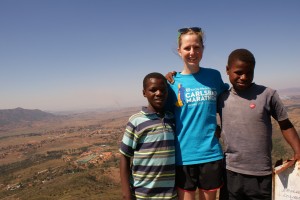
Menzie, Mduduzi and I at the top of a mountain in Swaz (Menzie and Mduduzi are two of the Swazi teens I play frisbee with each week and love dearly)
Do you feel like you are making a positive, critical impact on the global community?
On a personal/individual level I am making an impact on the daily lives of the Swazi teens I work and play with. My friends and I provide them with a critical support system they are lacking at home in most cases. The work I am doing at the clinic and other NGOs definitely has the ability to have an impact at the national level by informing organizations and health care providers of better ways to direct care and resources to patients. Most of my projects are still works in progress but the eventual outcomes will be influential to patient care and treatment in Swaziland.
What have you learned about the nonprofit and social business world in your experience?
One of the most important things I have learned is that you must work within the system, whatever that system may be-social, political etc. I spent quite a bit of time going about my work as if I was still in America and found myself frustrated day to day. Eventually I realized that I needed to work within the bureaucratic systems in place, thereby saving myself from a bit of frustration and grief. To the same extent, it is equally important for organizations to work on capacity building within the communities they operate in to establish sustainable programs.Do you think you make a unique contribution to your organization as a young person? Is your perspective or approach different from others?
Do you think you make a unique contribution to your organization as a young person? Is your perspective or approach different from others?
Yes. I have found that many of the employees working with NGOs in Swaziland are quite young and I think the vibrant personalities and fresh ideas provided by our generation contribute positively to the programs that are designed and implemented here. The dynamic between the younger and older employees is very valuable because it combines new ideas with wisdom and experience.
How do you see this experience fitting into your long-term goals?
My time here has solidified my passion for global public health work. I have had opportunities to experience or observe many aspects of the field that I did not know existed previously and I am confident that having that knowledge will benefit my studies in the future. My main goal has not changed but I have a more focused objective for the future.
What’s next? 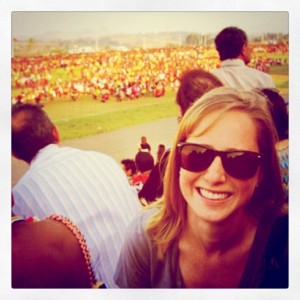
I will be volunteering in Sao Paulo, Brazil for 6 months beginning in January before starting graduate school next fall to pursue a Master in Public Health degree! After graduate school I plan to continue public health work abroad.
What is one thing you wish you knew before you came to your position?
The amount of communication skills it would require. A lot of my work involves communicating ideas clearly and succintly to other organizations and government programs. I have definitely developed my communication skills greatly over the past few months.
Do you have any advice for prospective gap-givers?
Taking a gap year is a wonderful way to figure out exactly what you want to do and provide you with a more focused perspective for future endeavors. I highly recommend taking some time off to give back to the world and learn; learn about yourself, your ambitions, the world, opportunities, other cultures, everything! All of your experiences will benefit you in the future.
Are you blogging about your work or travel? How can we stay in touch?
Blogging @ alliebhughey.blogspot.com
Would you be willing to take questions from potential Gappers?
Yes
Name: Mandy Messer
School: Michigan State University
Type of Work: Education, Technology
Region: Middle East, Asia
Length of stay: 6 months – 1 year
Tell us about the organization you work for and what you do for them.
I worked for an amazing educational program in Yerevan, Armenia, called TUMO, www.tumo.org. The mission of the program is to teach animation, web design, video production and video game production to high school students, by way of a game-like environment. I wrote the curriculum and several activities for the web design discipline. Here’s some more information on my experience in the workplace in Armenia in these two blog posts: “Using Your Talents”, “HTTP”.
Share a favorite memory.
Oh gosh, there are so many. I’ll start with my host family: 2 hour long conversations with my host mom every morning, always ending her stories with the same line that I learned so well “Vorovhetev, mer presidente lav e chi!” Meaning: “That’s because our president is no good!”. Late night conversations with my host sister when we went to bed. Hugs, cakes, delicious food, birthday parties, vodka, bonding in the middle of the night when we can’t sleep, celebrations, watching the Genocide commemoration parade on TV with them as the whole country took moments of silence, learning the language, laughing, joking, bonding, everything. I miss them.
What have you learned from your experience? How has it affected your long-term goals?
It gave me tremendous perspective on the work that I do here in the United States and how technology can make an impact. Working at TUMO and living in Armenia inverted my world. Social dynamics that were strong in the US were weak in Armenia and vice versa. The eagerness of a young person there blew my mind. How they wanted to learn everything about the English language, asking so many questions, embracing any exposure to the world and other cultures as possible, while retaining respect and appreciation for staying true to the Armenian culture, their family and their life. Overall, it opened my eyes and expanded my world. Since then, I’ve moved to a city that is more global-travel-friendly and adjusted my career so that I can continue to travel. With the long-term goal of structuring my career so that I can work internationally for months at a time. I was inspired, challenged and rewarded beyond anything I’ve ever done prior to this experience. This is the fabulous program that made my experience happen: Birthright Armenia
Next Generation of Service,
P.O Box 3445,
Ann Arbor, MI 48106
EIN: 46-4419221
Latest Tweets
Error: Could not authenticate you.


